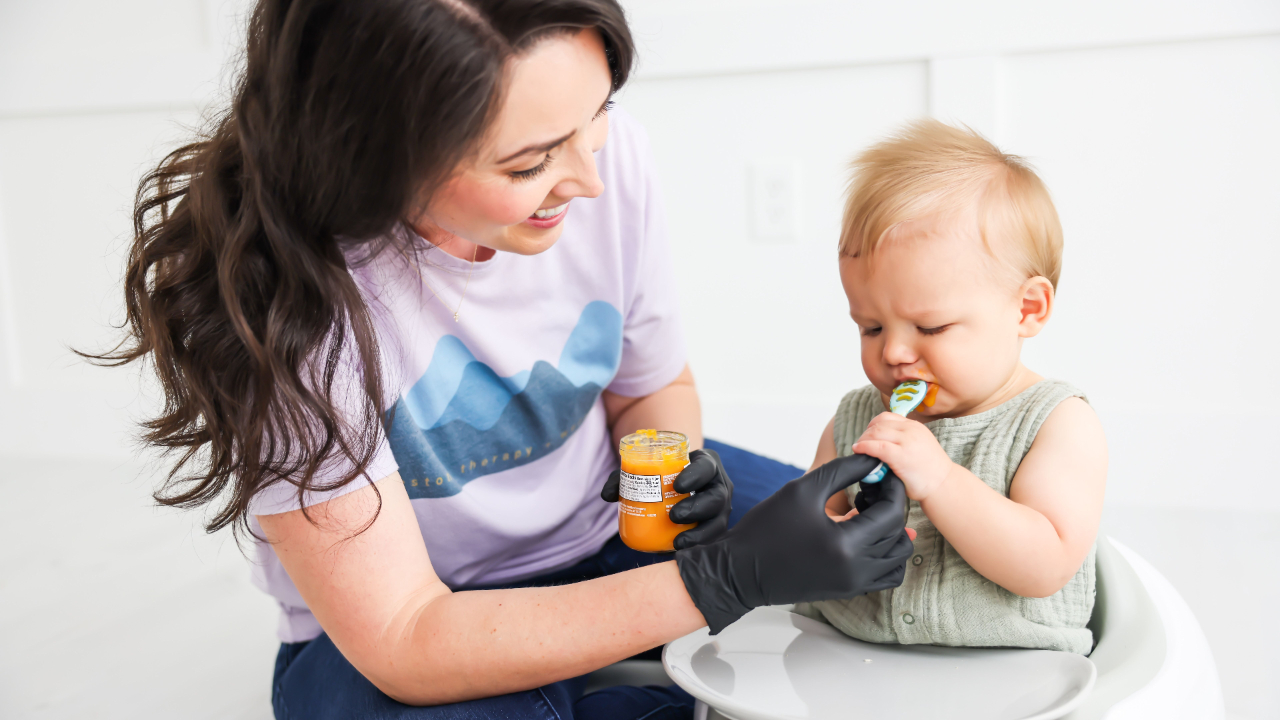When do I start solids?

Introducing solids can feel both exciting and a little overwhelming! It’s one of those milestones that looks different for every baby. While many babies are ready around 6 months of age, it’s less about hitting a date on the calendar and more about noticing the developmental signs of readiness.
Signs your baby might be ready:
-
Sitting with no support
-
Having good head and neck control
-
Showing interest in watching others eat
-
Bringing objects or food to their mouth
-
Managing food in their mouth and swallowing, without automatically pushing it out with their tongue
If you notice these cues, your baby’s body is likely developing the strength, coordination, and curiosity needed to begin exploring food safely.
How to Get Started
Whether you choose to start with purees, baby-led weaning, or a combination, the most important thing is to follow your baby’s lead and create positive, low-pressure experiences around food.
Try these tips to make the transition smoother:
-
Start slow — a few small tastes once or twice a day is plenty in the beginning.
-
Offer a variety of flavors and textures early on to help your baby accept new foods more easily later.
-
Expect (and embrace) the mess! It’s not just part of the process—it’s how babies learn about texture, temperature, and movement.
-
Skip the pressure. Your baby’s appetite will vary from day to day, and that’s normal. The goal right now is exploration, not volume.
When Feeding Feels Harder Than Expected
Some babies struggle more with this stage, and that’s okay. Challenges like frequent gagging, refusing to eat, or difficulty chewing and swallowing can sometimes be linked to:
-
Oral motor coordination difficulties
-
Sensory sensitivities (to texture, taste, or temperature)
-
Tension or tightness in the mouth and neck
-
Tongue or lip ties that limit movement
At Milestones Therapy & Wellness, we take a whole-body approach to feeding therapy—because eating isn’t just about the mouth. It involves posture, breath control, coordination, and comfort. During therapy, we help babies:
-
Strengthen the muscles involved in sucking, chewing, and swallowing
-
Improve movement and coordination between the mouth and body
-
Explore textures in a safe, encouraging way
-
Build confidence around mealtime—for both baby and parent
Feeding should be joyful, not stressful. If you have concerns about how your baby is transitioning to solids, or just want extra guidance, our team is here to help you feel confident and supported every step of the way.
Want to stay updated?
